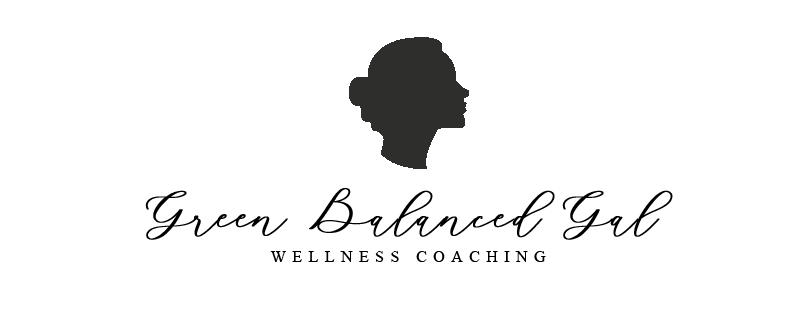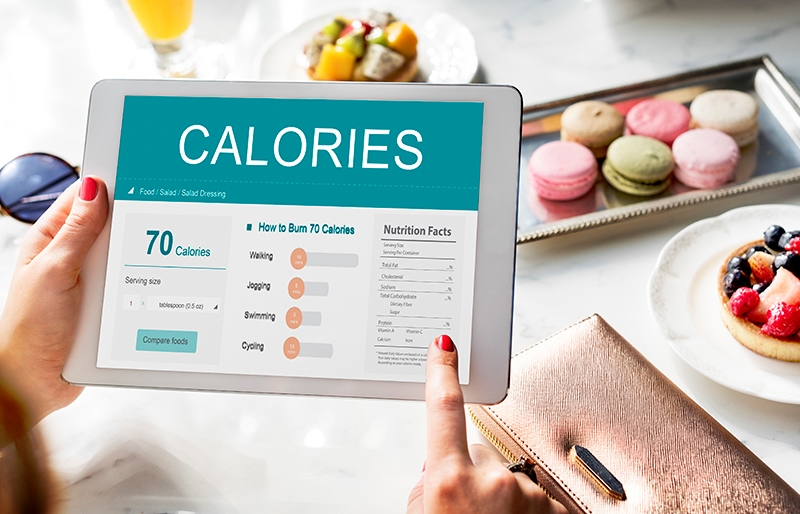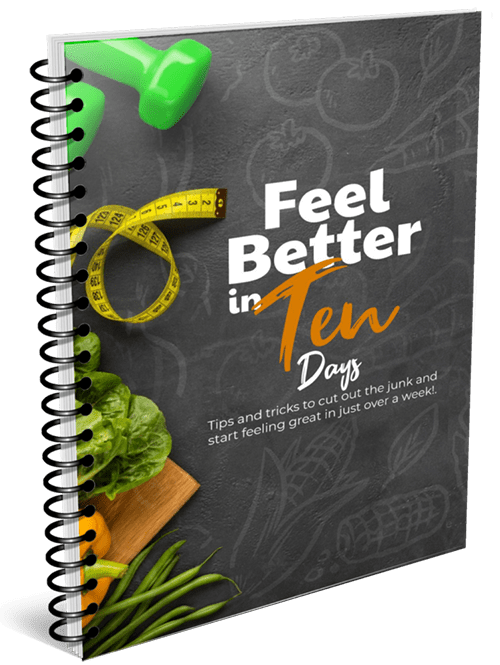The internet provides various recommendations on how to lose weight. However, did you know that there are wrong ways to lose weight? This news might come as a surprise for many. Most people believe losing weight is about running, hitting the gym, changing your diets, and even counting your calories.
However, there is so much more you need to consider, and this is not by any account a simple matter. You need to understand what your body needs, so you work out and eat in a way that will help you lose weight without damaging your health.
As previously mentioned, people believe counting your calorie intake will help in an individual’s weight loss journey. Is this information accurate? Let us get down to the details and help you answer this question.
Table of Contents
Is 1400 Calories Enough to Lose Weight?
It is enough for a man but not for a woman. On average, a man needs between 1,400 and 1,800 calories daily depending on the activities they take part in, so 1,400 calories will create a deficiency of about 400 calories which is enough to lose weight. Women need between 1,200 and 1,400 calories, so it will not be enough and could cause weight gain for those that don’t spend a lot of calories.
Ideal Strategies for Weight Loss
Weight loss is a critical topic and you need the proper guidance to help you through it or you may end up with more issues.
It’s important to find a way to lose weight and make the results last. Here are three tips that will help you maintain the ideal weight:
1. Keep it Slow
There shouldn’t be a rush when it comes to losing weight.
Ideally, aim to lose about 0.7 or 1 percent of your body weight each week. If you weigh 200 pounds, you should target to lose about 1.7 or 2 pounds per week. This rate might seem slow, but the slower you lose weight, the better. Losing weight, at this rate, ensures that you burn the fat, but your muscles remain intact. Losing weight too fast will cause you to lose weight and muscle mass which is not healthy.
Another reason to keep it slow is that the fat burns while muscles mostly take up the space, making it harder to gain weight. If you lose weight rapidly, due to intensive diets and workouts, you risk gaining all the weight back in a couple of years. Your metabolism will slow down, so you won’t be able to burn calories the way you should. Unfortunately, then, it is much easier to gain weight with a few wrong meals.
Slower weight loss helps you retain muscle mass and allows your body to adjust, over time. Thus, it is a semi-permanent fix.
2. Don’t Reduce Calories from Proteins When Changing What You Eat
There is no secret to dieting. In fact, dieting is not recommended. Most diets are extreme and sometimes a “latest fad”. As a change in your nutrition should be a lifestyle change not a one time fix.
In order to lose weight, it’s important to reduce calories, but you shouldn’t reduce calories from proteins. This recommendation means you have to cut calories from fat and carbohydrates while keeping an eye on your protein intake.
When eating proteins, you need to consider a gram of protein per pound of body weight. This amount is an excellent place for protein intake since it will help your body produce muscles as you work out.
Increasing protein intake while working to lose weight will help your body maintain muscle mass too. It might even help you increase muscle mass during a period of time, which is an advantage for athletes.
Maintaining a healthy protein intake will also prevent the calorie deficit from suppressing your metabolism. This intake means that you will burn calories at a healthy rate—you won’t gain weight quickly in the future. Protein also makes you feel full, helps in recovery, and makes it easier to keep balance.
3. Lift Weights
Lifting weights and completing exercises is very important. When you workout, your body will want to break down fat and muscles, making you tired. Lifting weights is the part of the process that gives your body an anabolic stimulus.
Lifting weights while focusing on eating clean whole foods, will provide your body with a buffer against all other signals that want to break down your muscles. At a minimum, try three days of workouts each week and make sure you do full-body drills.
If you are already working out four – five days, that is usually fine, but listen to your body. Sometimes you may need those days in-between to fully recover. Weight lifting is a get way to get body recomposition. Muscles grow out of necessity and weight lifting will help you with that.
You’ll lose weight and gain muscle, which might be hard at first, but you should manage if you put all three of these strategies into perspective and apply them. You’ll lose weight and gain muscle, which is the best way to stay in shape longer.
What Are Calories and How Do They Work For Losing Weight?
Losing weight is something that most people strive for at some point in their life, and there are many books, websites, and videos telling the best way of how to do this. The programs want you to believe that weight loss is difficult, but the truth is, it doesn’t have to be overly complicated.
Calories in the human body are a measurement of energy. One food calorie is about 1,000 gram calories, and this is how to measure the energy in the food you eat. Everything you eat or drink that isn’t water has calories, and they help you carry out all body functions.
All foods contain calories, and they each have different amounts of calories. Alcohol and fat have the highest calories of seven and nine calories per gram. You need a certain amount of energy each day to maintain body functions and stay alive.
People that do less work and move less need fewer calories, and those with more muscles that move more and do more work will need more calories. When you eat food, the body converts the food to calories you use for daily activities.
If you take in only as much food as you need, your body will burn all the calories by the end of the day, and your weight will remain constant. When you take in more calories than you need, your body will store the extra and gain weight.
When you take in fewer calories than you need, your body will take the stored food and use it to produce energy; thus, you will lose weight.
A standard human will have imbalances of too much and too little food so that they remain at an average weight.
Most foods in excess will lead to body fat since it stores them in the same form. When trying to lose weight, the goal is to get rid of stored body fat.
In some cases, the body will go through stored sugar before the fat, and in extreme cases, it will use the muscles.
How to Lose Weight by Manipulating Calories
How you get your calories is also important as you monitor how many you consume. There is a difference in nutritional value when comparing junk food verses quality fruits, vegetables, and meats. While an important factor is the actual number of calories, it’s also essential, for your overall wellness, to consider the source of your calories.
An important thing in weight loss is to consume fewer calories than you need each day. Even if you reduce your calorie intake by 200 calories, you’ll lose weight over time. Such happens since your body will have to make up for the missing calories by using the fat in your body.
Increasing the demand for calories in your body while decreasing the intake will boost how you burn the fat in your body. Such is where running and exercising come in: increasing heavy tasks in your routine make the body need more calories.
Most diet books say that burning 3,500 calories means losing one pound, but that is not accurate. If you lose 500 calories per day, you will lose 52 pounds each year, and after ten years, you will lose 500 pounds. Hence, the rule will break down at some point.
Think of it as a bucket full of water with a hole in it, the bucket being your body and the water your fat. The more water you add to the bucket, the faster it leaks: as you add less water, the level will reduce since the leak will be quicker than the addition.
The more weight you have to loose, the more energy you burn since it takes more energy to do most things because you are carrying more weight and have more tissue.
As you reduce calories, you adapt to the new diet changes, metabolically. You won’t lose weight at a constant rate as it will be a curve between steady paces. Hence, this is why weight loss needs to happen slowly, so your body will adapt, making it easier to stay in shape and sustain it.
Conclusion
1,400 calories can be enough to lose weight, depending on your lifestyle and body size. People with more weight to loose will find it easier to lose weight since they spend more energy doing the same things as smaller people.
When losing weight, you need to focus on a nutritional plan that helps you cut down on the fat while taking care of your body. Burning too much fat too quickly can be unhealthy, and it will make it easier for you to gain weight back faster.
Want to Work Together?
Counting your calories and exercise are among two things to help regulate your weight, whether you plan to lose or gain weight. However, achieving your desired health or fitness requires more than that—it involves a series of many decisions. Are you struggling to make good decisions? Are you a tired, overwhelmed, or stressed woman who’s beginning to experience negative health issues such as digestive problems, chronic inflammation, aging prematurely, and weight gain? After consistently putting in long hours and juggling too many priorities, are you desperate to make a change?
It’s easy to neglect personal wellness in exchange for what feels good and that never-ending to-do list. The thought of adding one more thing to your list – wellness – may even tip the scale. Take the guesswork out of the individual steps needed to find balance and optimal health and let the Green Balanced Gal Wellness Program lead the way. You are unique, your food and lifestyle choices should be too, and thankfully, the Green Balanced Gal approach to wellness is not a one-size-fits-all approach. Get started today with the coaching support you need to feel your very best – mind, body, and soul!
I want to guide you through taking back the balance and health in your life. I’d love to jump on a call with you to see how we can work together. Schedule a time here>>



